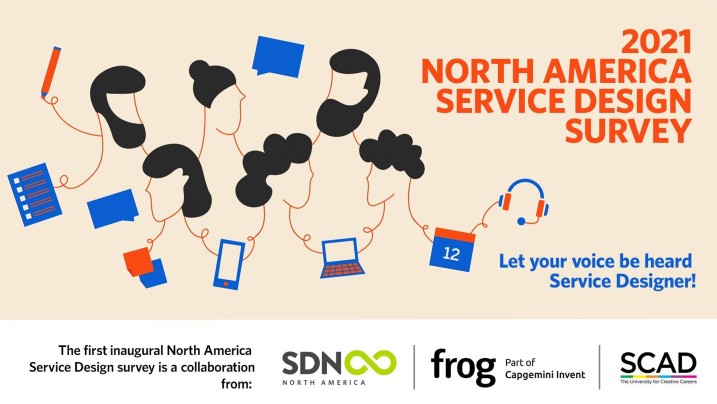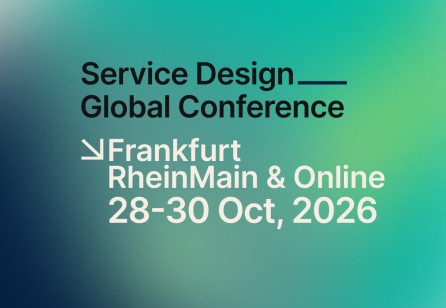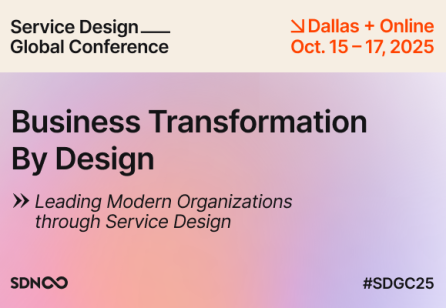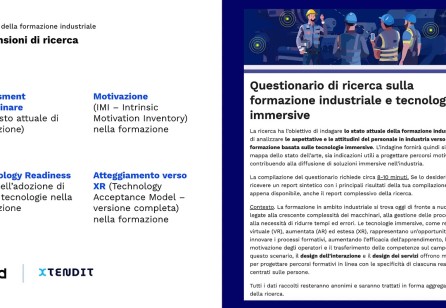frog is joining forces with the Service Design Network and the Savannah College of Art and Design to uncover the current state of Service Design in the United States. As we continue to deal with drastic shifts in our economy, we want to gather data that will help us best position the practice of Service Design for the future. To do that, we need your help—if you live in the United States and apply a Service Design mindset, methods and tools to your practice, we invite you to anonymously fill out this survey.
Service designers across the U.S. are dealing with drastic shifts in the service industry since the start of the pandemic. Looking to the future, it’s clear there is much work to be done to improve the quality of services provided to us as customers, patients, employees and citizens. As organizations shape new ways of working and try to understand the various forces affecting service delivery, they also face more critical challenges and responsibilities.
Today’s service providers must:
- Understand the context and ecosystem within which their service operates
- Design services with intention, not leaving anything to chance
- Be conscious of design decisions regarding diversity, equity, and inclusion
- Continuously evolve strategies around omnichannel experiences to remain competitive
- Deploy new technologies to support the delivery of market-leading services that are tailored and personalized
In the face of these changes, we must ask ourselves: How will the service economy continue to evolve? How will Service Design evolve in response? How can Service Design make the most impact in both the public and private sectors?
To find answers to these questions, we’re conducting research on the state of Service Design in the U.S. today. We’re especially interested in understanding the maturity of the practice and measuring changes in the industry over time. As a starting point, we’re asking any U.S. professionals who use a Service Design approach in their work to complete an anonymous, 15-minute survey about their current projects and their beliefs regarding the value of Service Design in the U.S.
Using this survey data, we will work with the Service Design Network (SDN) and the Savannah College of Art and Design (SCAD) to create a report that provides insights and answers to these critical questions. Respondents will receive an email invitation to view the report when it launches, along with exclusive access to the underlying survey results.
Participate in our State of Service Design survey today — together, we can better understand where Service Design is today, and where it might be headed tomorrow.
About our co-authors:
Service Design Network North America
The Service Design Network, founded in 2004, is the leading global authority on Service Design and aims to strengthen the theory and practice of the discipline around the world. The SDN global network brings members of the Service Design community together through various events, activities, awards, and educational resources, equipping today’s service designers with the tools, methodologies, and knowledge they need to create better services, products, and experiences. SDN’s extensive and engaged community of designers, academics, and innovators is working to speed the adoption of Service Design by demonstrating its potential to improve outcomes in business, government, and society at large.
Savannah College Art and Design
The Savannah College of Art and Design was founded in 1978 by Richard G. Rowan, Paula Wallace, May L. Poetter and Paul E. Poetter to provide college degree programs not previously available in southeast Georgia and to create a specialized professional art college that would attract students from throughout the United States and abroad. Today, SCAD is the only university in the U.S. offering B.F.A., M.A. and M.F.A. degrees in service design. SCAD’s service design program and faculty are unrivaled, with industry connections that ensure the program’s continuous evolution and provide the highest rates of graduate employability in the service design world.








Share your thoughts
0 RepliesPlease login to comment